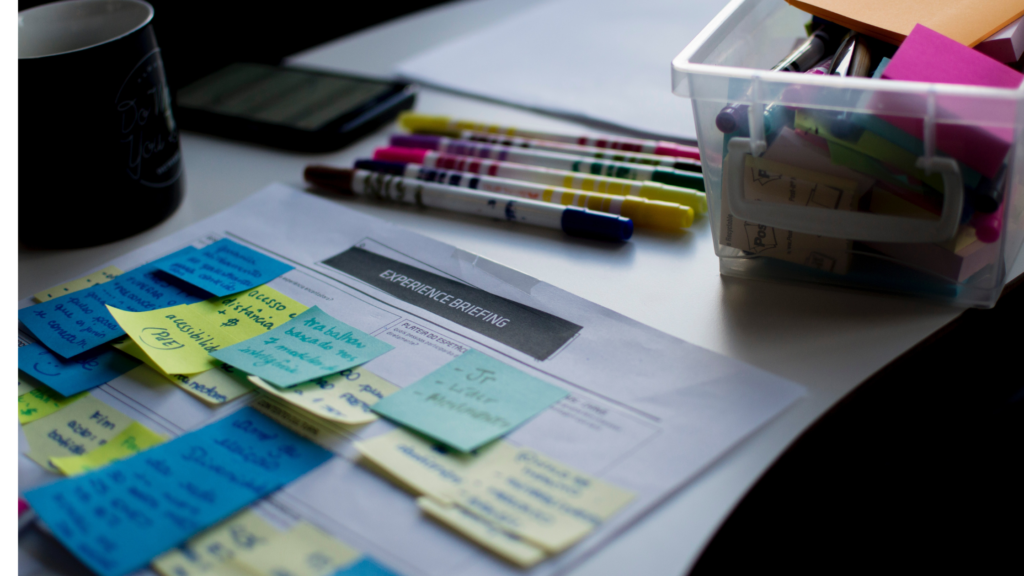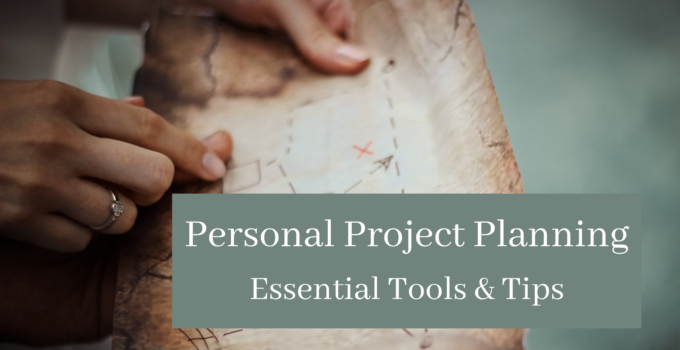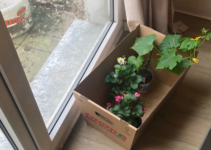Here’s the deal: I actually enjoy the personal project planning process. There’s something magical to me about dreaming up an end result and figuring out how to make it happen. I think it might be because I get to be creative and then drag myself back to earth with some analytical tactician work.
Whatever. Just believe me when I say: I love it.
But I know it can be overwhelming, especially with more complicated personal “projects” – it’s pretty easy to plan how to finish the most recent season of Umbrella Academy (which, btw, is awesome and insane and I love it), but it’s a little harder to make sure you don’t forget anything when you’re planning a vacation.
So. What do you need in order to successfully complete any of your personal project planning, and how do you execute?
Personal Project Planning Tools
I found this great article about project management that referenced the “3 Cs of Project Management”, and I highly recommend figuring out what works for you in each of these categories:
Checklists
They can be odious, but they’re important tools to ensure you don’t miss a thing. Whether you use pen and paper, sticky notes, or a digital tool like todoist, lists are a must when you have a lot of moving parts.
Calendars
Checklists are handy, but not great for keeping track of dates. Calendars are helpful for not only getting dates out of your mind, but are an excellent tool for setting weekly goals (more on that in this post). Again, it doesn’t matter if it’s paper or digital – as long as it works for YOU. Personally, I’ve gone digital in the Time of Coronavirus™, but when I’m out and about more, I prefer a paper calendar.
Communication
Not just for professional projects! When you’re planning personal projects, you’d be surprised how many people need to know about your plans – from live-in spouses to pet sitters to downstairs neighbors (“Hey, FYI I’m going to be drilling into my walls next week – let me know if it gets too loud!”). Generally, you’ll be pretty covered with texting, but make sure you keep track of any email addresses you might need!
Once you have your tools in place, you’ll be ready to plan any personal project!

Grab the sticky notes, we’re planning a vacation!
Actually Planning the Projects
For large, complicated projects, here are some steps to follow to organize and plan:
Step 1: Start at the end
This is called backwards planning: imagine what you want the end result to be. Come up with as many details as possible. Make it real for yourself.
As an example, if I were planning a vacation, I would imagine what kind of vacation I want. I’d imagine myself on a beach in a swimsuit with a fruity drink, floppy hat, and entertaining book. Or maybe I’d imagine a tent by a campfire, stars above, and a river rushing in the background.
Let’s go with the beach vacation idea. I have the place, the outfit, the activity, the food, all imagined.
Write all of that down
Step 2: Sort the thoughts and make a master to do list
Next, you’ll want to sort the details you’ve imagined into categories. These become their own mini-projects.
For the vacation, I have: Location, Wardrobe, Itinerary.
Take a little time and figure out what the steps for achieving each of these categories would be.
Location: Pick a beach/city, find a hotel, buy a plane ticket
Wardrobe: Research the climate, pull summer clothes out of basement, shop for new sunglasses
Itinerary: Check budget for how long I can afford to go, submit for time off from work, buy tickets for tourist attractions, make restaurant reservations
Step 3: Set some milestones – Remember, nobody’s watching
After you’ve listed all the steps you need to take, you need to put your calendar to good use. Note on your master to do list if any step depends on another step (AKA if anything NEEDS to be done before another thing), and make deadlines.
I know, I know, it seems overly structured to give yourself deadlines. You don’t HAVE to do it, but try it once and see if it gives you peace of mind – it’s easier to be relaxed when you have all your steps planned out! (And remember – nobody else is watching these dates, so if you have to move them around because life happens, nobody’s going to know!)
For the vacation example, I’m going to have to pick a city before I research the climate, and I should definitely check my budget for how long I can afford to go before I reserve a hotel!
I would ensure “check my budget” is on my next weekly goal list, then next week I can pick a city, research the climate, and find a hotel…
Step 4: Figure it out as you go
Honestly, a lot of personal project planning is figuring things out as you go. If you’ve never done anything before, how are you supposed to know how to do it? You don’t! You guess, try something, and learn as it all progresses.
That said, I have a couple tips in case you get truly stuck.
Research!
The internet is a marvelous tool. When I planned our Paris trip, the sheer number of possible activities overwhelmed me – it’s a big city! To help narrow it down, I googled “5 days in Paris” to see how other people constructed their 5-day itineraries. After reading a couple posts, I had a much better idea of how to divide up our time.
Ask people – and know when to hire help
If you’re stuck and the internet is giving you no help, start asking people. You’ll be surprised how varied your friends’ experiences are, and people are usually happy to share recommendations! I’ve found that asking coworkers usually gives me the broadest range of options.
And if things get really tough, don’t forget that you can always hire someone to help out! When I installed light fixtures in our apartment, one of the fixtures would NOT turn on. But I reached the end of my (incredibly limited) electricity knowledge and YouTube wasn’t giving me any new ideas.
So we hired an electrician. It was a bit scary, since I didn’t know how much it would cost. Luckily it was a silly mistake (it was two fixtures on one switch, and I closed the circuit on the first fixture), so it didn’t take long, wasn’t very expensive, and I now know how to prevent it in the future!
All in all, personal project planning doesn’t have to be confusing or overwhelming, as long as you have the right tools and an organized approach!



